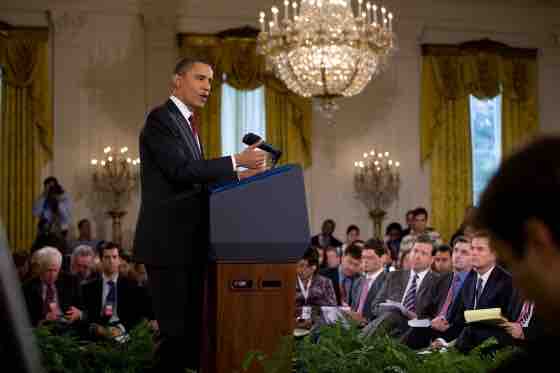Public Relations
The Democratic National Committee (DNC) and Republican National Committee (RNC) provide an important link between the Democratic and Republican leaders and the general public. The DNC and RNC vie for the attention of the public in hopes of attracting voters. using multimedia strategies that encompass both traditional as well as more modern approaches. Traditional mass media approaches include issuing press releases and coordinating staged events; more modern approaches include reaching out to prospective constituents through Facebook pages, Twitter feeds, and YouTube channels.
Both Democratic and Republican parties have developed sophisticated websites that provide extensive information about voting logistics, candidates and officeholders, and issue positions. These party websites also provide a means for direct participation in the DNC or RNC by providing information on volunteer activities and other opportunities to contribute to the Democratic and Republican Parties.
Political parties also play an active role in managing the media. In addition to hosting websites and populating social media, parties engage in spin with journalists and produce and air radio and television advertisements. It is important for parties to interact with the media in order to attract positive attention to their political candidates and remain viable in the public eye. Parties that have a strong media presence are the most effective in attracting volunteers and financial contributors.

Spin
Press conferences are one way in which politicians can engage journalists in spin, or interpreting an issue or event in the favor of their political party.
The role of parties in informing the public can most clearly be seen in the relationship between the DNC and the Obama administration. After his inauguration, Obama transferred his Obama for America organization to the DNC, which renamed it Organizing for America. Under the leadership of the DNC, Organizing for America controls the BarackObama.com domain and website and works closely with the White House New Media Director.